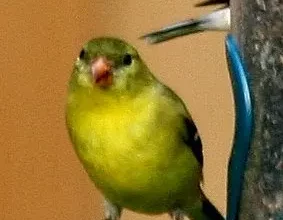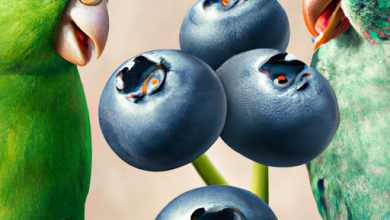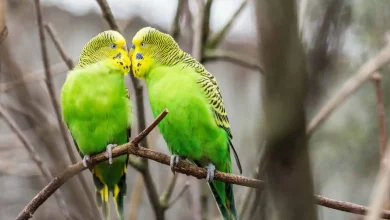Can Ducks Eat Kale?
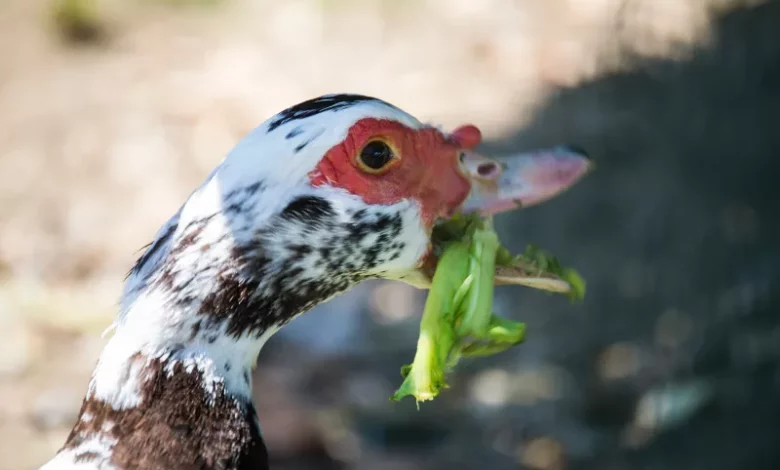
What Nutrients Does Kale Provide for Ducks?
Kale is a leafy green vegetable that is packed with essential nutrients, making it an excellent food source for ducks. Ducks are omnivores, meaning they eat both plants and animals, so adding kale to their diet can help them obtain the essential vitamins and minerals they need to stay healthy.
Kale is a great source of vitamins A, C, and K. Vitamin A is important for a duck’s vision, growth, and immune system, while vitamin C is essential for healthy skin, bones, and blood vessels. Vitamin K helps with blood clotting and bone growth. Kale is also a good source of fiber, which helps keep a duck’s digestive system functioning properly.
Kale is also a great source of minerals, including calcium, magnesium, and potassium. Calcium is important for strong bones and teeth, and magnesium helps with energy production and muscle contractions. Potassium is important for maintaining a healthy heart and blood pressure.
Kale is also a good source of protein, which is essential for a duck’s growth and development. Protein helps build and repair cells, and it’s also important for muscle growth and maintenance.
In addition to these essential nutrients, kale is also rich in antioxidants, which help protect cells from damage caused by free radicals. Antioxidants can help reduce inflammation, which can improve a duck’s overall health and well-being.
Overall, kale is
What Are the Benefits of Ducks Eating Kale?
Kale is a highly nutritious vegetable, and it is becoming increasingly popular as a dietary staple for humans. However, did you know that ducks can also benefit from eating kale? Ducks are omnivorous, meaning they eat both plants and animals, and kale is a great addition to their diet. Here are some of the benefits of ducks eating kale.
First, kale is an excellent source of vitamins and minerals. It is rich in vitamins A, C, and K, as well as potassium, calcium, and iron. These vitamins and minerals are essential for ducks’ health and growth. Kale also contains antioxidants, which can help protect ducks from diseases and illnesses.
Second, kale is a great source of fiber. Fiber helps ducks digest their food more efficiently, and it can also help them maintain a healthy weight. Fiber also helps ducks feel fuller for longer, which can help prevent overeating.
Third, kale is a low-calorie food. Ducks need to maintain a healthy weight, and kale is a great way to do this. Kale is also low in fat, so it won’t add unnecessary calories to ducks’ diets.
Fourth, kale is a great source of protein. Ducks need protein for strong muscles and healthy feathers. Kale is a good source of plant-based protein, which can help ducks meet their protein needs without having to rely on animal sources.
Finally, kale is a great source of
What Are the Risks of Ducks Eating Kale?
Kale is a popular vegetable that is often included in a healthy diet, but it dangerous if eaten by ducks. Ducks are omnivores, meaning they eat both plants and animals, and while kale can provide a nutritious snack, it can also pose a number of risks.
Kale is high in oxalic acid, which can be toxic to ducks when consumed in large amounts. Oxalic acid binds to calcium in the body, preventing the absorption of essential minerals. This can lead to a calcium deficiency, which can cause a variety of health problems, including weakened bones, impaired growth, and even death.
In addition, kale is high in fiber, which can be difficult for ducks to digest. If a duck eats too much kale, it can cause digestive issues such as bloating, diarrhea, and vomiting. Kale can also interfere with the absorption of other nutrients, leading to malnutrition.
Finally, kale can contain harmful bacteria, such as E. coli and Salmonella, which can cause food poisoning in ducks. If a duck eats contaminated kale, it can lead to severe illness and even death.
Overall, while kale can be a nutritious snack for ducks, it should only be given in moderation. Ducks should also have access to a variety of other healthy foods, such as fresh vegetables, fruits, and grains. It is also important to thoroughly wash kale before feeding it to ducks, as this can reduce the risk of contamination
How to Prepare Kale for Ducks
Kale is a nutritious and delicious vegetable that can be a great addition to the diet of ducks. It is an excellent source of vitamins A, C, and K, as well as minerals such as calcium, iron, and magnesium. Kale is also rich in fiber, which can help to promote healthy digestion in ducks. Preparing kale for ducks is simple and can be done in a few easy steps.
The first step is to thoroughly wash the kale. This will help to remove any dirt or debris that may be present. After washing, it is important to remove the tough stems from the kale. This can be done by simply cutting them away with a knife. Once the stems have been removed, the kale can then be chopped into small pieces. This will make it easier for the ducks to eat.
Next, the kale should be boiled for a few minutes. This will help to soften the kale and make it easier for the ducks to digest. After boiling, the kale should be drained and cooled. Once cooled, it can then be served to the ducks.
When serving the kale to the ducks, it is important to ensure that it is not too salty or spicy. Ducks can be sensitive to strong flavors, so it is best to keep the seasoning to a minimum. Additionally, it is important to make sure that the kale is not too dry. Ducks need to have access to water to help them digest their food, so adding a bit of water
What Other Foods Can Ducks Eat Besides Kale?
Ducks are omnivorous birds that can eat a variety of foods. In addition to kale, ducks can enjoy a variety of other foods. This includes fruits, vegetables, grains, and other types of plant matter.
Fruits and vegetables are an important part of a duck’s diet. Ducks can eat a variety of fruits, including apples, bananas, and grapes. They can also eat vegetables such as carrots, celery, and corn. These foods provide essential vitamins and minerals to the duck.
Grains are also an important part of a duck’s diet. Ducks can eat oats, wheat, and barley. These grains provide essential carbohydrates and proteins. Ducks can also eat a variety of seeds, such as sunflower, pumpkin, and flax.
In addition to these foods, ducks can also eat a variety of other plant matter. This includes aquatic plants, such as duckweed and water lilies. Ducks can also eat aquatic insects, such as dragonflies and water beetles.
Overall, ducks can eat a variety of foods in addition to kale. Fruits, vegetables, grains, and other plant matter are all important parts of a duck’s diet. These foods provide essential vitamins, minerals, carbohydrates, and proteins to the duck.
Excerpt
Ducks are omnivorous animals that feed on a variety of food sources, including plants. Kale is a leafy green vegetable that is high in many nutrients and can be a beneficial part of a duck’s diet. Ducks can safely consume kale, however, it should be served as a supplemental food and not as a primary source of nutrition.
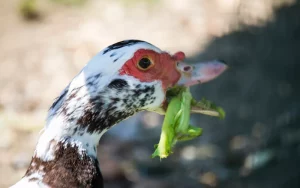
And while ducks are known for their love of bread, it’s important to provide them with a well-balanced diet that includes a variety of foods – and that’s where kale comes in.
The Nutritional Value of Kale for Ducks
If you’ve been following along with our previous section, you already know that ducks need a well-balanced diet that includes plenty of vitamins and minerals. And let me tell you, kale is a real MVP in the world of duck nutrition.
First of all, let’s talk about what kale actually is. Kale is a leafy green vegetable that’s related to other veggies like broccoli and cauliflower. It’s packed full of all sorts of good-for-you stuff, like vitamins A, C, and K, as well as minerals like calcium and potassium.
So, why is kale so great for ducks? Well, for starters, it’s a fantastic source of nutrients that are essential for maintaining good health. Here are just a few of the benefits of feeding kale to your feathered friends:
- Vitamin A: This vitamin is important for maintaining healthy eyesight, as well as promoting good immune function.
- Vitamin C: Just like in humans, vitamin C helps to support a healthy immune system in ducks.
- Vitamin K: This vitamin is important for blood clotting, which can be especially helpful if your ducks are prone to injuries or bleeding.
- Calcium: Ducks need calcium to maintain strong bones and eggshells, so feeding them calcium-rich foods like kale is crucial.
But wait, there’s more! Kale is also a great source of antioxidants, which can help to protect your ducks against things like oxidative stress and inflammation. Plus, it’s low in calories, which means you can feed it to your ducks without worrying about them packing on the pounds.
Of course, like with any food, it’s important to feed kale to your ducks in moderation. While it’s chock-full of nutrients, too much kale (or any other veggie, for that matter) can upset your ducks’ delicate digestive systems. Aim to feed your ducks kale as part of a well-balanced diet that includes plenty of other fruits, veggies, and protein sources.

